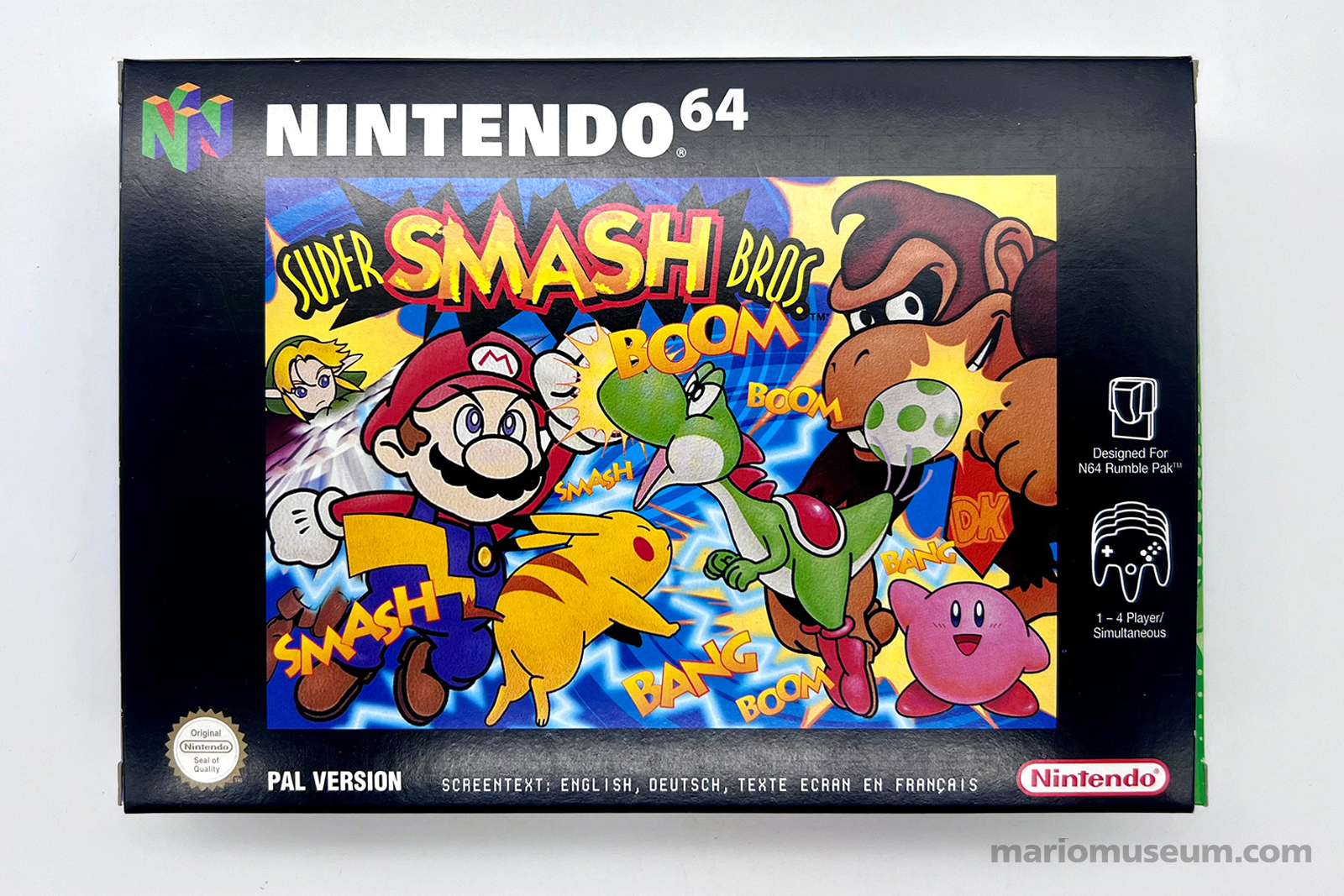Release (UK): 19/11/1999
NUS-NALP-EUR
Release (USA): 26/04/1999
NUS-NALE-USA
Release (Jap): 21/01/1999
NUS-NALJ-JPN
Genre: Fighting
Developer: HAL Laboratory, Inc.
Publisher: Nintendo Co., Ltd.


The start of a legendary franchise
Super Smash Bros., released in the UK on 19th November 1999, was a groundbreaking fighting game that marked the beginning of one of Nintendo’s most beloved franchises. Developed by HAL Laboratory, this title was unique for bringing together a roster of iconic Nintendo characters, from Mario to Pikachu, in an all-out brawl. It was unlike any other fighting game at the time, as it emphasized fun and chaos over traditional fighting mechanics.
Accessible, yet competitive
One of the key features of Super Smash Bros. was its accessibility. The controls were simple enough for newcomers to pick up quickly, yet there was a depth of strategy that could be explored by seasoned players. The game’s combat was fast-paced, with players using a combination of punches, kicks, and special moves to send opponents flying off the stage. Despite its simplicity, the game became a competitive staple in gaming communities, with tournaments becoming a major part of the series’ legacy.
A franchise born
The success of Super Smash Bros. on the N64 laid the groundwork for a series that would continue to evolve with each new console release. The UK release of the game was well-received, introducing millions of players to the chaotic, fun-filled world of Nintendo crossover battles. Over the years, the series has expanded to include even more characters and stages, continuing to deliver the same fast, frenetic gameplay that made the original such a hit. Super Smash Bros. remains one of Nintendo’s most successful franchises and a fan-favourite for its blend of nostalgia, action, and fun.
See the whole series:
- Super Smash Bros. (1999)
- Super Smash Bros. Melee (2001)
- Super Smash Bros. Brawl (2008)
- Super Smash Bros. for Nintendo 3DS (2014)
- Super Smash Bros. for Wii U (2014)
- Super Smash Bros. Ultimate (2018)
(Indicates year of first release. Dates may differ between regions.)

